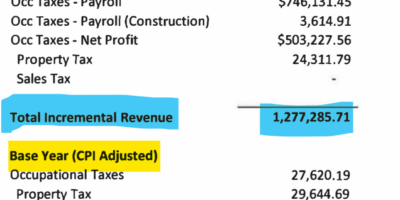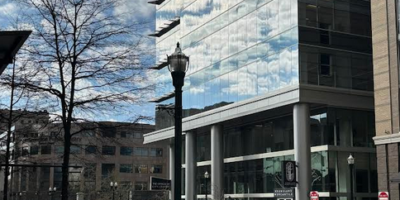Homegrown labor trafficking
By Beth Connors-Manke
In part one of this series, Beth discussed sex trafficking, especially in the imagination of middle class American culture. Here, she turns her attention to forced labor.
On May 25, Marco Antonio Flores-Benitez pleaded guilty to conspiracy to sex trafficking by force, fraud, or coercion. This is the first conviction for human trafficking in Kentucky, and not surprisingly it was for the sex side of human trafficking and related to illegal immigration. Flores-Benitez and three others orchestrated a commercial sex delivery service that shuttled women between Lexington and Louisville and then stretched further to Indiana, Ohio, and Tennessee. According to the March 2 indictment, two of the four defendants had been previously deported; the other two had entered the U.S. illegally.
While burgeoning popular understandings of human trafficking often associate it with commercial sex and illegal immigration, it may be more useful to see it through an economics and labor lens: this is a shadow economy that’s has been growing, and continues to grow, amidst the humdrum of our daily lives.
According to the International Labour Organization’s (ILO) 2012 “Global Estimate of Forced Labour,” 90 percent of forced labour takes place in the private economy (rather than imposed by a state). Of the exploitation in the private economy, 68 percent occurs in commercial enterprises such as agriculture, construction, domestic work, and manufacturing; 22 percent is forced sex work.
Human trafficking, which fits under the ILO’s definition of forced labor, is notoriously hard to quantify, as so much depends on the definition one uses and on the difficulty of measuring activity that happens in the shadows. Other measurements suggest trafficking in sex is more common—or at least easier to count, since in some places it may receive more public attention and legal prosecution.
However, when the U.S. State Department details the variations on trafficking in persons, there are more categories for labor trafficking: forced labor, bonded labor, debt bondage among migrant laborers, involuntary domestic servitude, forced child labor, and child soldiers. In other words, there are many methods for trapping a person in a life of enslaved work. While immigrants are particularly vulnerable to trafficking, people can be—and are—trafficked in their own countries, including the U.S.
Labor, not just sex
While the definition of human trafficking is grounded in forced work, the law distinguishes commercial sex as labor from other types of involuntary servitude. Federally, human trafficking is defined as “sex trafficking in which a commercial sex act is induced by force, fraud, or coercion, or in which the person induced to perform such act has not attained 18 years of age” or “the recruitment, harboring, transportation, provision, or obtaining of a person for labor or services through the use of force, fraud, or coercion for the purpose of subjection to involuntary servitude, peonage, debt bondage, or slavery.”
Why the federal law (and now common understanding) has taken that particular shape is an interesting question. Why is human trafficking first defined as sex trafficking and then broadened to other forced labor? Why the titillating and then the mundane?
Answer: economics.
The economics of the issue is more discernable in some state-level laws against trafficking. While Kentucky law considers any human trafficking a class C felony, with a higher degree if the victim suffers physical injury, New York is a different case. The 2007 New York state law makes sex trafficking a class B felony with a maximum of 25 years imprisonment; labor trafficking comes in lower at a class D felony with a maximum sentence of seven years.As Stephanie Hepburn and Rita Simon note, “when examining the New York State Anti-Trafficking Law, it is initially difficult to comprehend how this law came to be as it illustrates an obvious disparity in both definition and penalties of sex versus labor traffickers.” At issue is the fact that the New York law makes it more difficult to prosecute labor traffickers than sex traffickers. In their research, Hepburn and Simon found that there was a rift in the anti-trafficking coalition along the sex-labor divide, with agricultural interests pushing for weaker penalties for labor trafficking.
One way to look at this is to see that labor trafficking is deemed less offensive because it benefits more people—middlemen who traffic in labor, the businesses that contract (knowingly or not) that indentured servitude, and clients who purchase goods and services from that business. What might this scenario look like?
Welcome to New Orleans
After Hurricane Katrina, Million Express Manpower, Inc. from North Carolina recruited workers through a locally based Thai agent. The workers were promised visas, several years of employment, and a set hourly rate. This offer, though, cost them huge fees, effectively putting them in debt peonage. Once the workers arrived, their documents were confiscated by the traffickers, and Million Express Manpower soon began pedaling their services in New Orleans. The Thai nationals were imprisoned by armed guards and forced to live in the Katrina-damaged buildings they were demolishing.
Here’s how the New Orleans-based Gambit described the hotel where the Thai workers were living when they were discovered: “The Capri Hotel on Tulane Avenue was no place for human inhabitants in November 2005. Floodwaters from the levee breaches had inundated the building and sat festering for two weeks, leaving mold-covered walls. The rank odor of death permeated the air, mingled with the smell of decay and the fetid stench of wet, moldy carpet.”
The irony here is at least two-fold. First, Thailand was one of the countries pummeled by the 2004 tsunami in the Indian Ocean. While statistics for the disaster are varied, it is estimated that almost 8,000 Thai were killed and 7,000 displaced in the natural disaster. In comparison, approximately 1,800 people were killed in Hurricane Katrina less than a year later, close to 1,000 in Louisiana itself. These Thai workers were swept from a tsunami-decimated country to a hurricane-ravaged state—and made to work there as slaves.
Second, the major critique of the Katrina disaster in New Orleans was that the poorest neighborhoods had been the most vulnerable to the levee failure. The Katrina disaster, the argument went, turned out to be about an American history of dispossession based on race and class. Who better then to gut storm-damaged hotels and restaurants? Even poorer, and now enslaved, workers from Thailand.
Eventually freed, the Thai workers have brought a lawsuit against their employer and the recruiters. Crucially, they have also received “trafficking” visas that allow them to remain in the U.S. The Thai nationals were originally brought in under legal H2A visas, which have very specific conditions and would have sent them back to Thailand. Traffickers often use restrictive H2 visas, which tie the immigrant worker’s stay in the U.S. to that employer.
Who’s running the show?
As Rutgers law professor James Gray Pope points out, “In place of the proud slave masters of yore, we now have layers of small-time labor procurers and contractors (sometimes with colorful labels like “gatos” and “coyotes”) who work for what appear to be respectable business people who, in turn, work for others in a chain that often leads to multinational corporations. The people at the bottom do the actual enslaving; they are clearly culpable, but also easily replaced. The people at the top, who have the power to end the practice, often lack provable culpability.”
And, evidently, those people at the top may even have the power to influence legislation, protecting themselves from the legal penalties for labor trafficking. Sound a bit like the ubiquitous and sinister power that Occupiers have been protesting over the past year? That’s because trafficking, whether in the sex trade, in construction, or in agriculture, is about valuing profit over human dignity. In Pope’s view, human trafficking simply adds a layer of violence to the capitalist labor market, which tends to value the abstract (market share, profit margins) over the embodied (persons, families). This can be small-scale entrepreneurial, as seems to be the case with Flores-Benitez and his sex service, or it can be large-scale commercial, as it is with vegetable growers providing tomatoes for our fast-food tacos.




Leave a Reply